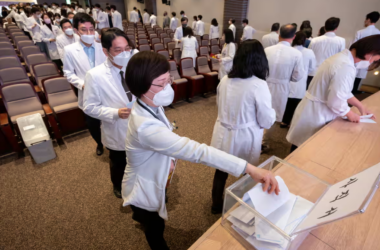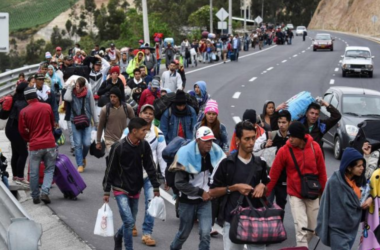In a move that has stirred controversy and debate, the European Union (EU) has decided to discard its proposal aimed at halving the use of pesticides, citing concerns over feasibility and the potential economic impact on farmers. The decision, described by some as a “symbol of polarization,” underscores the challenges of balancing environmental protection with agricultural productivity and economic viability.
The EU’s original proposal, part of its ambitious Green Deal initiative, sought to significantly reduce the use of chemical pesticides by 2030 as part of broader efforts to promote sustainable agriculture and protect biodiversity. However, the proposal faced staunch opposition from several member states, as well as agricultural stakeholders, who argued that such drastic measures would be impractical and harmful to food production.
Critics of the proposal raised concerns about the potential consequences of reducing pesticide usage, including decreased crop yields, increased pest damage, and higher production costs. Farmers, in particular, voiced apprehension about the feasibility of transitioning to alternative pest management methods, citing the lack of viable alternatives and the potential financial burden of implementing new practices.
Additionally, some member states argued that the EU’s proposed targets were overly ambitious and not based on scientific evidence, raising doubts about their effectiveness in achieving meaningful environmental improvements. Others raised concerns about the potential impact on global food security, highlighting the EU’s role as a major exporter of agricultural products and the potential for reduced competitiveness in international markets.
In light of these challenges, the EU ultimately decided to abandon its proposal to halve pesticide usage, opting instead for a more flexible approach that emphasizes integrated pest management and promotes the use of non-chemical alternatives where feasible. While the decision represents a setback for environmental advocates, it reflects a pragmatic recognition of the complexities and trade-offs inherent in agricultural policy-making.
The EU’s decision has reignited debate over the balance between environmental protection and economic interests in agriculture, highlighting the inherent tensions between sustainability goals and the realities of food production. Proponents of stricter pesticide regulations argue that the EU’s retreat sends a troubling signal about its commitment to environmental stewardship and could undermine efforts to address pressing ecological challenges such as biodiversity loss and soil degradation.
On the other hand, supporters of the EU’s decision contend that a more gradual and pragmatic approach is necessary to ensure the long-term viability of European agriculture and prevent unintended consequences for farmers and consumers. They argue that integrated pest management practices, which prioritize preventive measures and minimize reliance on chemical pesticides, offer a more sustainable and realistic path forward.
Despite the abandonment of its pesticide reduction target, the EU remains committed to advancing its broader environmental and sustainability agenda, including efforts to promote organic farming, support agroecological practices, and reduce the environmental impact of agricultural production. The Green Deal initiative, which aims to make the EU carbon-neutral by 2050, continues to drive policy discussions and shape the future of European agriculture.
As the EU navigates the complex and contentious terrain of agricultural policy, the debate over pesticide usage serves as a microcosm of broader tensions between economic imperatives and environmental concerns. Finding a balance that promotes both agricultural productivity and environmental sustainability remains a formidable challenge, but one that is essential for ensuring the long-term health and prosperity of European agriculture and society.








